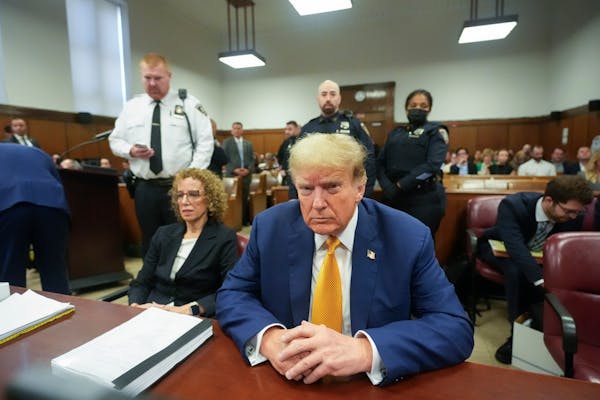FORT MYERS, FLA. - Riccardo Ingram had the same addiction to chewing tobacco that afflicts so many baseball people. Ingram also admits that on occasion he had a few more beers than the number required to quench a thirst after a hot night at the ballpark.
On a regular visit to Duke University to consult with Dr. Allan Friedman, an internationally known neurological oncologist, Ingram asked the doctor if those bad habits -- chew and brew -- might have led to the Grade 4 cancerous tumor in the front of Riccardo's brain.
Friedman said that those were very unlikely factors in this cancer.
"I said, 'So what is it, doctor?'" Ingram said. "What is it that caused me to get this thing?' And Dr. Friedman looked at me and said, 'Bad luck.'"
Ingram was sitting in the home dugout at Hammond Stadium early on a cool, blue spring morning. And he let out a laugh and said, "That's it -- bad luck" -- and he laughed some more.
It was here at spring training two years ago when Ingram started feeling mild headaches. "I had never been a headache guy, so I was trying figure out where they were coming from," he said. "My guess was, 'It must be all that pollen we get down here in March.'"
Ingram has been a coach or manager in the Twins farm system since 1998. In 2009, he was back in Rochester, N.Y., for a second season as the hitting coach of the Class AAA Red Wings.
The headaches began to intensify. Ingram started to show up late at the ballpark, which never had been an issue for him previously.
"Toward the end, it's hard to explain to people who haven't experienced real headaches how bad it was," Ingram said.
In June, Ingram finally went to the Red Wings' team doctor. A brain scan showed the tumor and then a biopsy revealed the tumor was a Grade 4 giloblastoma. Friedman and Duke's brain cancer center were in the news at the time for treating former U.S. Senator Ted Kennedy. And that's where the Twins encouraged Ingram to seek treatment.
The attack on this tumor started with a 12-month regimen of radiation and chemotherapy. For a period, the blood supply to that part of the brain also was cut off to prevent the tumor from growing.
"What's amazing is that I haven't had one negative day with side effects since treatment started," Ingram said. "There was some nausea for a week or two when I started radiation, but after a couple of weeks, my body adjusted and I've felt fine."
A mass is still there -- smaller than it was. Ingram makes regular clinical visits to Duke. The most recent was in February. "The doctors were elated," he said. "They said, 'You're not out of the woods yet,' but also felt that most of what's left is scar tissue."
Ingram will work as a hitting instructor for both Rochester and Class AA New Britain this season. He has been in big-league camp for three weeks with the Twins' other minor league coaches and managers.
The clubhouse has been packed with 59 players this spring. There aren't many who have come through the organization who haven't been around Ingram.
"Riccardo's a great, great teacher," said Chris Parmelee, the Twins' first-round draft choice in 2006. "He knows baseball. He's outstanding with the mechanics of the swing. But it's not just that ... he's very positive guy to be around."
Ingram was a football and baseball player at Georgia Tech. He was drafted by the Detroit Tigers in fourth round of 1987. He waited until right before the '88 draft to sign. He had his "cup of coffee" in the big leagues, 23 at-bats for the Tigers in 1994 and eight ABs for the Twins in 1995.
Phil Roof was the manager at Salt Lake City, the Twins' Class AAA club, in 1995 -- Ingram's first of two seasons as a player in the organization. Roof's brother Gene worked for the Tigers and gave Phil a heads-up that Ingram's nickname was "Biscuit."
Roof said: "The first time I met him, I said, 'You ready to have a good year, Biscuit?' He gave me the 'how did you know that?' look."
And did Biscuit have a good year? "He won the batting title for me," Roof said. "He was one of only two ballplayers I ever saw that kept his own scouting report on every pitcher he faced. The other was Andre Dawson. Riccardo made notes after every AB and had that notebook with him all season."
In 1998, the Twins had an opening for a hitting coach with their Fort Wayne affiliate in the Class A Midwest League. Minor league director Jim Rantz tracked down Ingram and offered the job.
"I was done playing and wanted to spend more time with my wife and two daughters," Ingram said. "I was thinking about going back to Georgia Tech to finish my degree. But I told Mr. Rantz, 'OK, I'll try it for a year,' and that's all it took.
"As I say, 'If you stay in this game long enough, it sucks you in.' "
And then Riccardo Ingram laughed again, a robust, healthy laugh.
Patrick Reusse can be heard noon-4 weekdays on 1500ESPN. preusse@startribune.com

Reusse: Former Twins pitching coach Johnson brings his velocity to Georgia

Reusse: Just as in 1980, surprising contributors fueling Twins' 12-game winning streak

Reusse: When or if Buxton plays, his place is in center field
Reusse: Hey, NBA refs! Time to stop putting up with the abuse!


